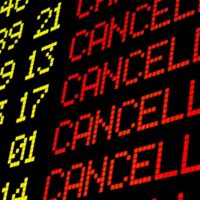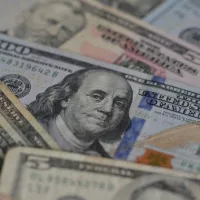
Mimadeo/iStock(NEW YORK) — The novel coronavirus outbreak has already upended an entire industry, resulting in canceled flights, resorts on lockdown, and a deadly cruise ship quarantine. With the world bracing for a pandemic, experts say the travel sector should prepare for even more uncertainty ahead.
The outbreak is expected to cost the airline industry alone nearly $30 billion.
Moreover, the decline in Chinese and other Asian tourists coming to the U.S. “will translate into a loss of $7.7 billion in visitor spending,” according to Adam Sacks, the founder and president of Tourism Economics, an Oxford Economic consulting company for the travel industry.
“The impacts are significant indeed; to put it another way, it represents 7.5 million hotel room nights,” said Sacks. “It’s just a massive economic hit in one year.”
“The impact is almost certainly going to be larger than what we felt during SARS,” Sacks added. “The main reason for that is that the markets affected, especially China, are so much larger than they were seven years ago.”
Airlines expected to take a nearly $30 billion hit
Some of the biggest losses will be felt by the airlines, which are expected to lose $29.3 billion in revenue due to the COVID-19 outbreak, according to an initial assessment by the International Air Transport Association (IATA). A vast majority of that revenue loss — $27.8 billion — would hit carriers in the Asia-Pacific region.
IATA CEO Alexandre de Juniac said that due to the coronavirus, his organization is forecasting the first overall decline in air travel demand since the financial crash of 2008-2009.
“Airlines are making difficult decisions to cut capacity and in some cases routes,” he said in a statement. “This will be a very tough year for airlines.”
Just weeks after the outbreak began in Wuhan, China, in late January, major U.S. airlines suspended or canceled flights to the Chinese mainland.
Delta, United and American Airlines have all suspended all flights to mainland China through late April — and American and United have suspended flights to Hong Kong as well.
As the virus spread to other parts of the world, Delta also announced it was suspending some flights to South Korea, and all three carriers said they would issue travel waivers for those who have booked flights there. Delta and United also announced they were issuing waivers for flights to Italy, where another cluster of coronavirus cases emerged, through mid-March.
The IATA calculated the nearly $30 billion figure based on how the industry was hit after the SARS epidemic, which was characterized by a sharp decline in travel demand for six months followed by an equally quick recovery — though it’s still unclear if this outbreak will follow a similar path.
Hayley Berg, an economist at the flight and hotel booking service Hopper, told ABC News that demand for travel to China is about 40% lower than it was at the beginning of January. Barring any significant changes, Berg said, “we expect this to be the new norm.”
The suspension of U.S. flights to China has also had a big impact on the rest of the region, according to Berg, because many flights to Asian destinations connect through China. For example, about half the U.S. flights to Ho Chi Minh City in Vietnam rely on a transfer in China.
“Many of these countries are also relying on that connection of the U.S. to China to fuel their tourism,” Berg said.
Berg says her company analyzes travel demand based on what people are searching for via online travel agencies.
“The areas that we know (have taken) the most recent demand hits because of coronavirus are definitely concentrated in Asia and Southeast Asia,” she said.
As a result, Berg said, more people in the U.S. have been looking for local travel destinations.
“We’ve seen a definite uptick in demand for domestic flights at the same time that international demand has fallen,” she said. “I would expect that is something we will see continue.”
Meanwhile, areas with no coronavirus cases, including Alaska and Australia, appear to be using that as a tourism selling-point.
Impacts likely to be felt on a ‘global scale’
While COVID-19 has been confirmed in a limited number of places, fear has already spread far beyond. On Wednesday, two ports in the Caribbean denied entry to a cruise ship without any evidence there was coronavirus on board.
“If there was previously a temptation to view the coronavirus as a China or Asia issue, then developments this week must force a shift in mindset,” Nick Wyatt, the head of travel and tourism at data and analytics firm GlobalData, said in a commentary.
Citing the dozen towns in Italy that are on lockdown, as well as other European countries that have announced confirmed cases, Wyatt said that it’s “readily apparent that the impact is likely to be felt on a more global scale than was perhaps previously envisaged.”
And while government-imposed travel restrictions and flight cancelations are having an impact, “incessant media coverage of the issue is also impacting traveler confidence,” Wyatt said.
In particular, the saga of the Diamond Princess cruise ship, where hundreds of passengers were quarantined on board while the ship was docked in Yokohama, Japan, has received worldwide headlines. Princess Cruises, which operates the ship, canceled all Diamond Princess voyages through April 20 due to the “prolonged quarantine period” and the cruise line offered a full refund to all 2,666 guests, more than 400 of whom were from the United States.
“Cruises have seen negative press coverage in the last few weeks, which is not helping operators,” Wyatt said. “These actions restrict people’s ability and willingness to travel and this is obviously creating significant headwinds for the industry.”
Sacks, however, is bullish on an eventual recovery.
“What we’ve seen many times is resilience in the cruise industry,” he said. “Demand still comes back.”
If outbreak is contained, rebound is expected to be quick
Wyatt predicts the impact on the travel industry as a whole will be widespread, and that hotels, online travel agencies and cruises will likely suffer economic losses.
“While it’s important to temper the hysteria and make it clear that the travel and tourism sector is not going to grind to a halt altogether, we must be realistic and acknowledge the fact that it will need to navigate choppy waters for some time to come,” he said.
But once the virus is contained, Sacks believes the industry will rebound.
After the SARS outbreak ended, Sacks says it took roughly four months for the travel industry to stabilize. Once the coronavirus outbreak is contained, Sacks predicts the rebound will be just as fast.
“The travel market is very resilient,” said Sacks. “Once a crisis passes, and it’s no longer front-page news, people resume their travel paths very quickly.”
“Our forecast for 2021 is very strong,” he added. “It’s the mirror image of the downturn.”
Copyright © 2020, ABC Audio. All rights reserved.















